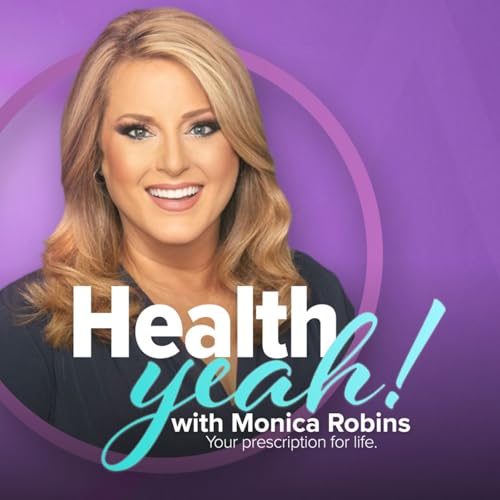
Minority men face unique health challenges, but help is available
No se pudo agregar al carrito
Add to Cart failed.
Error al Agregar a Lista de Deseos.
Error al eliminar de la lista de deseos.
Error al añadir a tu biblioteca
Error al seguir el podcast
Error al dejar de seguir el podcast
-
Narrado por:
-
De:
Men of color in Cleveland face a dangerous myth that could be costing lives: the belief that they must "tough it out" until health problems become unbearable before seeking medical care.
Dr. Randy Vince, director of minority men's health at University Hospitals in Cleveland, says this mentality prevents early detection of serious conditions like hypertension, diabetes, and cancer—diseases that often show no symptoms until they reach advanced stages.
"Usually it does not matter the medical condition when we're talking about hypertension or high blood pressure, diabetes, or even cancer like prostate cancer. You don't have symptoms until things are really advanced," Vince explained during a recent interview.
The consequences extend beyond physical health. Suicide rates are increasing among Black men specifically, a trend Vince calls "very preventable" if men can be connected with mental health resources earlier.
"The rates of suicide are actually increasing in black men specifically, and so I think if we can start to again dispel this myth that you can tough it out, I don't need to see a mental health professional, we can actually end up saving a lot of men," he said.
Breaking down barriers to careVince emphasizes that men need to understand their relationship with healthcare providers differently. "As physicians we work for you," he said, encouraging patients to seek second opinions and find new doctors if they don't feel heard.
For men hesitant about traditional doctor visits, Vince points to alternative options. Nurse practitioners and physician assistants can provide primary care services, and most preventative care is covered 100% by insurance with minimal copays.
Men facing Medicaid cuts still have options, according to Vince. County boards of health, city resources, and federally qualified health centers (FQHCs) can connect patients with care and insurance information.
Critical screenings men shouldn't skipStarting at age 40, men should prioritize specific health screenings, Vince advises. Blood pressure checks, diabetes screenings, and cholesterol tests form the foundation of preventative care. Colon cancer and prostate cancer screenings become essential as these are "major cancer killers" with high survival rates when caught early.
Mental health deserves equal attention. Vince recommends men start with resources they trust, including faith-based organizations that can connect them with professional help.
"Depression, for instance, or anxiety, that is not abnormal," Vince said. "Many men face that, so I think if they can realize that this is not abnormal and you don't have to try to tough it out, you're not in this battle alone."
Understanding the bigger pictureSocial determinants of health—factors like poverty, housing conditions, and access to nutritious food—significantly impact both physical and mental wellbeing. Vince points to environmental pollution causing respiratory conditions and limited access to healthy foods as examples of how external factors affect health regardless of medical care.
"These social determinants of health all impact our health and it's despite whether or not you just go to the doctor or not," he explained.
The stigma around mental health treatment is slowly lifting in communities, but "not fast enough," according to Vince. He encourages men to understand that seeking help demonstrates strength, not weakness.
"Leaning into your struggles actually takes a lot of strength, not weakness," he said.
Resources for men's healthFor mental health connections: The Cutler Center for Men connects men with mental health resources and can be reached by calling University Hospitals.
For insurance and care resources: Contact your local county board of health or city health department for information about available insurance options and federally qualified health centers.
For general health questions: Many health systems maintain websites with provider directories and appointment scheduling, and most offer telehealth consultations.
Vince's final message to men is simple: "Be empowered. Do not feel like you're in a struggle alone. There's actually strength in numbers, and we are here to help. Knowledge is power, so don't be afraid to seek that knowledge."
Monica Robins is not a medical doctor. All content presented in this program is for informational purposes only. It is not intended to be a substitute for professional medical advice and should not be relied on as health or personal advice. Always seek the guidance of your personal doctor or qualified healthcare professional with any questions regarding your health or medical condition.


